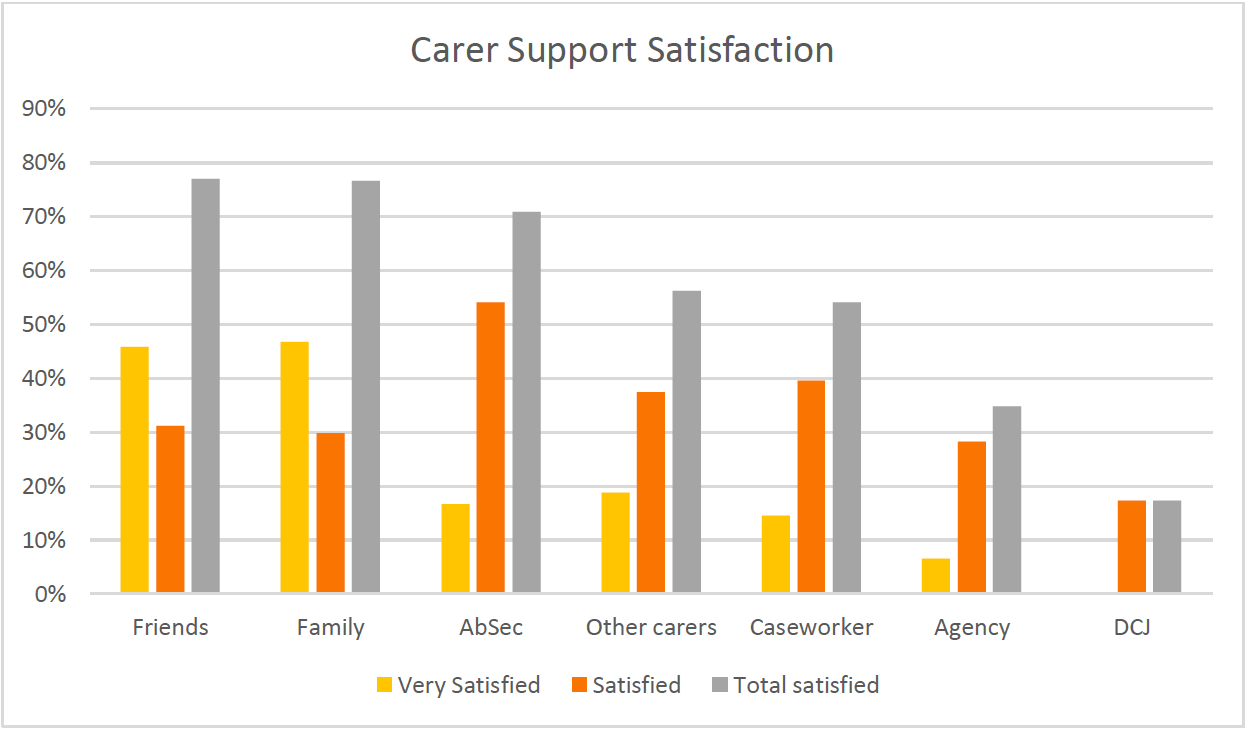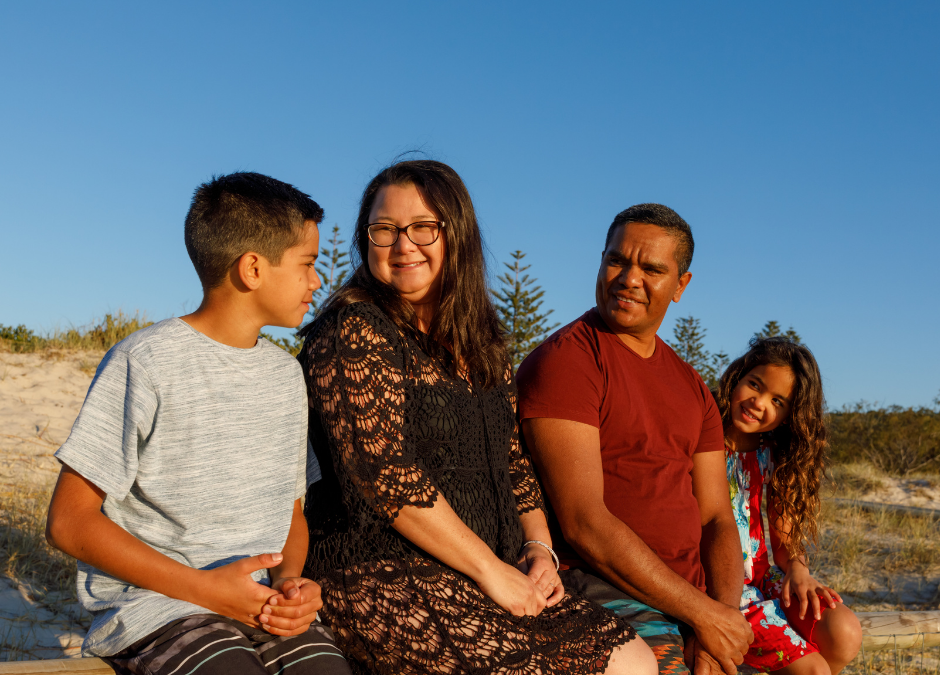To help AbSec better understand the experiences and challenges of being a carer, we recently held our annual carer support survey, and we can now share some of those results.
Carers play an important role in the lives of the Aboriginal children and young people they are raising, ensuring they are in a safe, secure and loving environment that is strongly connected to culture.
The AbSec Carer Support Survey 2021 had responses from foster carers, kinship carers and guardians that were spread across NSW. A majority of those surveyed are providing long-term care (92%), with their carer authorisation split across the Department of Communities and Justice (38%), Aboriginal out-of-home care agencies (30%) and non-Aboriginal NGOs (32%).
Respondents ranged in age, with a majority either 35-54 (47%) or 55+ (42%) and most identified as Aboriginal and/or Torres Strait Islander (64%). All of those that responded have been a carer for at least a year, with most 5-10 years (40%) or 10-20 years (30%).
We asked how satisfied carers were with the support they were receiving. The results indicated that those closest to carers like family and friends were showing the most support, while the Department of Communities and Justice and agencies had the least satisfaction with their support.

The survey also assisted in identifying some key concerns which included:
- Cultural support plans and resourcing
- Lack of support
- Busy workload to comply with obligations such as health plans
- Dealing with allegations
- Cultural knowledge and understanding
- Communication with caseworkers
- Mental health support
- Activities to do with kids during COVID lockdowns
- Inconsistencies with carer financial assistance
Input was invited from carers who made a range of suggestions that would improve their experience, such as:
- Additional support
- Financial support for cultural activities and experiences
- Less staff turnover and consistency in case management
- Having an Aboriginal support network
- More accountability for DCJ
- More autonomy to make decisions in the child’s best interest, such as mental health support
On the areas AbSec works across, almost half (44%) responded that they have contacted our Aboriginal Carer Support Service, although there are still many (29%) that indicated they haven’t contacted it and are not sure what support it provides. We will be making a concerted effort to promote its availability to all our carers in the future.
A majority of respondents (83%) also said they would be interested in participating in cultural connections training, an offering made by AbSec. Additionally, most carers in the survey (81%) were not a member of a carer support group and of those over half (52%) would like to see a group established in their area.
AbSec would like to thank all our deadly carers that participated in our annual carer survey. We hope to incorporate this knowledge into our work supporting carers, so watch this space!
